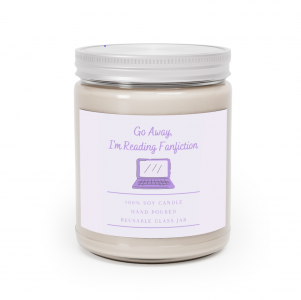Yesterday, Young Adult novelist Laura Silverman tweeted that one of her candles she was selling was being taken down for Trademark infringement.
Silverman’s candle, which she was selling on Etsy, had a label that read: “Go Away, I’m Reading Fanfiction.” This was allegedly an infringement on the “Harry Potter” trademark, but Silverman noted that she did not mention Harry Potter at all on the candle.
Of course, as a series of novels with millions of sales worldwide, Harry Potter is well known among FanFiction writers. According to the extremely reliable Quora.com, Harry Potter has the most fanfictions written about it. Does this make the association between Harry Potter and fanfiction strong enough for a Trademark claim?
One Twitter user, who is a trademark attorney, solved the problem fairly quickly: apparently, the tags for the candle included the phrase “Harry Potter”.
As such, Silverman was said to be using the trademark of Harry Potter to sell her product.
While there was much outcry about something seemingly trivial triggering a claim against Silverman’s product, a lawyer pointed out that there was confusion between trademark and copyright. Silverman’s product itself was not violating any intellectual property law. That is, the creation itself was fully original. Trademark infringement, however, involves using a Trademarked name (in this case, “Harry Potter” in the tags) in order to sell a good or service.
I am interested in whether Silverman would have any defense, as this seemed a bit extreme to me. If fanfiction and Harry Potter are strongly connected due to the popularity of Harry Potter fanfiction, could Silverman raise the defense of a good faith right to use? Further, to what extent is the use of the Harry Potter tag helping Silverman sell her product?
Since I’m not selling anything, I’ll be sure to add “Harry Potter” to the tags.

 Copyright & Social Media
Copyright & Social Media Communications Law
Communications Law